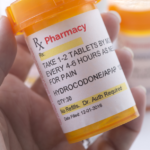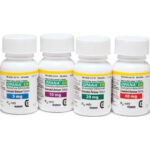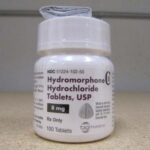Methylphenidate: Uses, Dosage, Side Effects, Abuse, Addiction

Methylphenidate, sold under the brand name Ritalin among others, belongs to a class of medications called central nervous system (CNS) stimulants. It works by changing the amounts of certain natural substances in the brain. It is used as part of a treatment program to control symptoms of attention deficit hyperactivity disorder (ADHD; more difficulty focusing, controlling actions, and remaining still or quiet than other people who are the same age) in adults and children.
Methylphenidate (Methylin) is also used to treat narcolepsy (a sleep disorder that causes excessive daytime sleepiness and sudden attacks of sleep). Methylphenidate is a DEA Schedule II controlled substance. Substances in the DEA Schedule II have a high potential for abuse which may lead to severe psychological or physical dependence.
How quickly does methylphenidate work?
Methylphenidate typically starts working relatively quickly after ingestion, with the effects becoming noticeable within 30 minutes to an hour. However, the exact onset and duration of action can vary depending on the specific formulation of methylphenidate.
Immediate-release formulations of methylphenidate usually take effect within 30 minutes to an hour after ingestion. These formulations provide a relatively short duration of action, typically lasting around 3 to 4 hours. They are commonly taken multiple times per day to maintain the desired therapeutic effects throughout the day.
Extended-release formulations of methylphenidate, such as Concerta, Ritalin LA, or Aptensio XR, are designed to provide a more gradual and sustained release of the medication over an extended period. These formulations typically start working within 1 to 2 hours after ingestion, and their effects can last for 8 to 12 hours or longer, depending on the specific product.
It’s important to note that individual responses to methylphenidate can vary. Some individuals may experience faster or slower onset of action, and the duration of effects can also differ from person to person. Factors such as metabolism, other medications being taken, and individual variations in brain chemistry can influence how quickly methylphenidate takes effect.
If you have any concerns or questions about the timing or effectiveness of methylphenidate for your specific situation, it’s recommended to consult with your prescribing doctor or healthcare provider. They can provide personalized guidance based on your needs and help optimize your treatment plan.
How should methylphenidate be used?
When using methylphenidate follow the prescribing doctor’s instructions and use methylphenidate as directed. Here are some general guidelines for the use of methylphenidate:
1. Prescription and Dosage: Methylphenidate should only be used with a valid prescription from a healthcare professional. The dosage will depend on various factors such as age, weight, medical condition, and individual response. Follow the prescribed dosage and schedule carefully.
2. Timing: Take methylphenidate at the recommended times to ensure its effectiveness and to minimize any potential sleep disturbances. For example, the medication is often taken in the morning and early afternoon to avoid interfering with sleep patterns.
3. Administration: Methylphenidate is available in different forms, including immediate-release tablets, extended-release tablets, and extended-release capsules. Follow the specific instructions provided by your doctor or pharmacist regarding the form of medication you are prescribed. Swallow the tablets or capsules whole and do not crush or chew them unless instructed otherwise.
4. Food Interactions: Methylphenidate can be taken with or without food, but some formulations may require administration with food to optimize absorption. Follow the instructions provided by your doctor or pharmacist regarding food interactions.
5. Avoiding Misuse: Use methylphenidate only as prescribed. Do not take higher doses or use it more frequently than recommended. Taking methylphenidate in ways other than prescribed, such as crushing and snorting the medication, can be dangerous and increase the risk of adverse effects and addiction.
6. Regular Monitoring: Regularly communicate with your prescribing doctor to discuss the medication’s effectiveness, any side effects or concerns, and any necessary adjustments to the dosage or treatment plan.
7. Discontinuation: Do not abruptly stop taking methylphenidate without consulting your doctor. They may provide guidance on gradually tapering off the medication if needed.
It’s important to note that methylphenidate may have potential side effects, such as decreased appetite, trouble sleeping, irritability, headache, and increased blood pressure. If you experience any concerning side effects or have questions about your medication, consult your healthcare provider for guidance and support.
What side effects can this medication cause?
Methylphenidate may cause side effects. Tell your doctor if any of these symptoms are severe or do not go away:
- nervousness
- irritability
- difficulty falling asleep or staying asleep
- dizziness
- nausea
- vomiting
- loss of appetite
- weight loss
- stomach pain
- diarrhea
- heartburn
- dry mouth
- headache
- muscle tightness
- drowsiness
- uncontrollable movement of a part of the body
- restlessness
- decreased sexual desire
- heavy sweating
- back pain
Some side effects can be serious. If you experience any of the following symptoms, call your doctor immediately or get emergency medical treatment:
- fast, pounding, or irregular heartbeat
- chest pain
- shortness of breath
- excessive tiredness
- slow or difficult speech
- fainting
- weakness or numbness of an arm or leg
- seizures
- changes in vision or blurred vision
- agitation
- believing things that are not true
- feeling unusually suspicious of others
- hallucinating (seeing things or hearing voices that do not exist)
- motor tics or verbal tics
- depression
- abnormally excited mood
- mood changes
- frequent, painful erections
- erection that lasts longer than 4 hours
- numbness, pain, or sensitivity to temperature in the fingers or toes
- skin color change from pale to blue to red in the fingers or toes
- unexplained wounds on the fingers or toes
- fever
- hives
- rash
- blistering or peeling skin
- itching
- swelling of the eyes, face, lips, mouth, tongue, or throat
- hoarseness
- difficulty breathing or swallowing
Methylphenidate may slow children’s growth or weight gain. Your child’s doctor will watch his or her growth carefully. Talk to your child’s doctor if you have concerns about your child’s growth or weight gain while he or she is taking this medication. Talk to your child’s doctor about the risks of giving methylphenidate to your child.
Methylphenidate Safety Information
Methylphenidate can be habit-forming. Do not take a larger dose, take it more often, take it for a longer time, or take it in a different way than prescribed by your doctor. If you take too much methylphenidate, you may find that the medication no longer controls your symptoms, you may feel a need to take large amounts of the medication, and you may experience unusual changes in your behavior. Tell your doctor if you drink or have ever drunk large amounts of alcohol, use or have ever used street drugs, or have overused prescription medications.
Do not stop taking methylphenidate without talking to your doctor, especially if you have overused the medication. Your doctor will probably decrease your dose gradually and monitor you carefully during this time. You may develop severe depression if you suddenly stop taking methylphenidate after overusing it. Your doctor may need to monitor you carefully after you stop taking methylphenidate, even if you have not overused the medication, because your symptoms may worsen when treatment is stopped.
Do not sell, give away, or let anyone else take your medication. Selling or giving away methylphenidate may harm others and is against the law. Store methylphenidate in a safe place so no one else can take it accidentally or on purpose. Keep track of how much medication is left so you will know if any is missing.
Your doctor or pharmacist will give you the manufacturer’s patient information sheet (Medication Guide) when you begin treatment with methylphenidate and each time you get more medication. Read the information carefully and ask your doctor or pharmacist if you have any questions. You can also visit the Food and Drug Administration (FDA) website.
How to overcome methylphenidate abuse
Overcoming methylphenidate abuse requires a comprehensive approach and professional support. If you or someone you know is struggling with methylphenidate abuse, here are some steps that can help:
1. Acknowledge the problem: Recognize and accept that there is a problem with methylphenidate abuse. It’s important to understand the negative impact it is having on your life.
2. Seek professional help: Consult a healthcare professional or addiction specialist who can provide guidance and support throughout the recovery process. They can assess your situation, develop a personalized treatment plan, and monitor your progress.
3. Detoxification: If you are physically dependent on methylphenidate, a medically supervised detoxification process may be necessary to safely manage withdrawal symptoms. This process helps your body rid itself of the drug while minimizing discomfort and potential complications.
4. Therapy and counseling: Engage in individual therapy or counseling to address the underlying issues contributing to the abuse. Behavioral therapies, such as cognitive-behavioral therapy (CBT), can help you identify triggers, develop coping skills, and modify negative thought patterns and behaviors.
5. Support groups: Join a support group, such as Narcotics Anonymous (NA), to connect with others who have experienced or are experiencing similar struggles. Sharing experiences, learning from others, and receiving support can be immensely helpful during recovery.
6. Develop healthy coping mechanisms: Identify healthier ways to cope with stress and emotional difficulties. Engage in activities that promote physical and mental well-being, such as exercise, mindfulness, hobbies, and creative outlets.
7. Build a support network: Surround yourself with a supportive and understanding network of family, friends, and peers who are committed to your recovery. Openly communicate with them about your challenges, progress, and goals.
8. Create a structured routine: Establish a structured daily routine that includes regular sleep patterns, healthy meals, exercise, and meaningful activities. Structure and routine can help fill the void left by the absence of methylphenidate abuse and provide stability during the recovery process.
9. Address co-occurring disorders: If you have co-occurring mental health disorders, such as anxiety or depression, it is important to receive proper treatment. Treating these conditions concurrently with methylphenidate abuse can improve overall outcomes.
10. Stay committed and be patient: Recovery is a gradual process that takes time and effort. Be patient with yourself and stay committed to your recovery goals, even if there are setbacks along the way. Celebrate small victories and seek support when needed.
Remember, overcoming methylphenidate abuse is a journey that requires professional guidance, support from loved ones, and personal commitment. Reach out for help, take it one day at a time, and believe in your ability to recover and lead a healthier, substance-free life.




